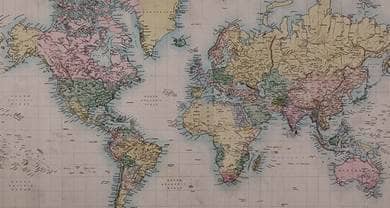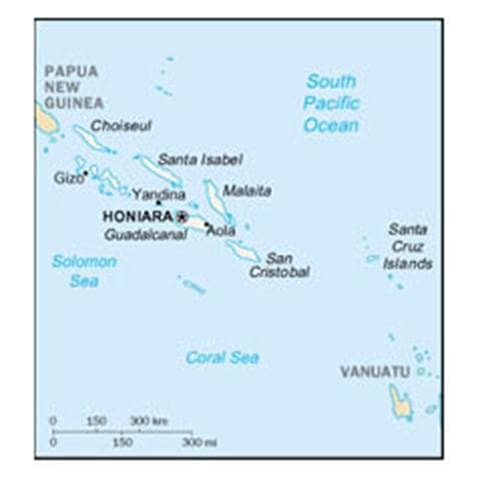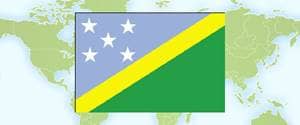- Trending:
- Pope Leo Xiv
- |
- Israel
- |
- Trump
- |
- Social Justice
- |
- Peace
- |
- Love

RELIGION LIBRARY
Solomon Islands

The country is an archipelago with an area of 11,599 square miles and a population of 523,000. Approximately 92 percent of the population is affiliated with one of the following Christian churches: Anglican, 35 percent; Roman Catholic, 19 percent; South Seas Evangelical, 17 percent; Methodist, 11 percent; and Seventh-day Adventist, 10 percent. These five groups comprise the Solomon Islands Christian Association (SICA), an ecumenical nongovernmental organization that plays a leading role in the civic life of the country. An estimated 5 percent of the population, consisting primarily of the Kwaio community on the island of Malaita, practices indigenous animistic religions. Groups that together constitute less than 5 percent of the population include Muslims, the Baha'i, Jehovah's Witnesses, The Church of Jesus Christ of Latter-day Saints (Mormons), Unification Church, and indigenous churches that have broken away from the major Christian denominations. According to reports, there are approximately 350 Muslims scattered in small numbers around Honiara, Malaita, and Rusell Island. There are believed to be members of other religious groups within the foreign community, but they are not known to proselytize or hold public religious services.
| Population | Population (2009 est.) 595,613 |
| Religious Demographics | Church of Melanesia (Anglican) 32.8%, Roman Catholic 19%, South Seas Evangelical 17%, Seventh-Day Adventist 11.2%, United Church 10.3%, Christian Fellowship Church 2.4%, other Christian 4.4%, other 2.4%, unspecified 0.3%, none 0.2% (1999 census) |
| Ethnic Groups | Ethnic Groups Melanesian 94.5%, Polynesian 3%, Micronesian 1.2%, other 1.1%, unspecified 0.2% (1999 census) |
| Languages | Languages Melanesian pidgin in much of the country is lingua franca; English (official but spoken by only 1%-2% of the population); 120 indigenous languages |
| Country Flag |  |










